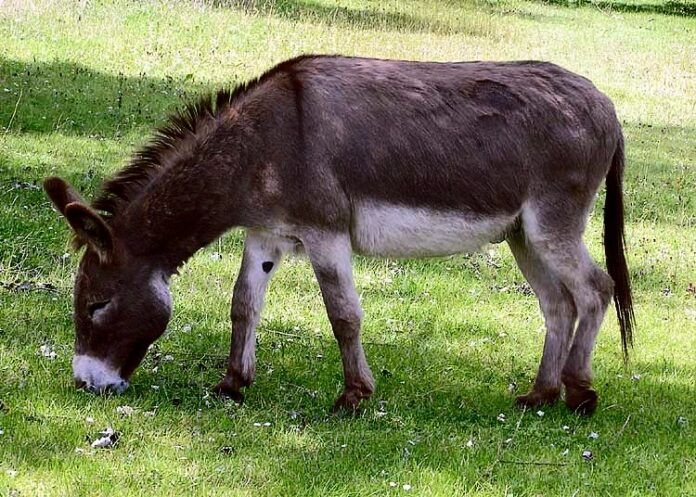GLOCESTER – The Rhode Island Department of Environmental Management has announced that a donkey in Glocester has tested, “presumptive positive,” for eastern equine encephalitis or EEE.
It is the first case of a mammal contracting the virus in the state this year and RIDEM has raised the state’s risk level to, “high,” as a result.
The agency also noted that two additional mosquitos collected in Glocester last week also tested positive for the virus. The previous week, one mosquito sample collected in the town tested positive for EEE, the first found in the state this year.
RIDEM said the donkey’s official lab results should be available by the end of the week. No human cases have been reported this year.
The virus is contracted through a bite from an infected mosquito. EEE is extremely rare in humans, but can be serious if left untreated, with around 30 percent of people who contract the virus dying, and many survivors having ongoing neurological problems.
The risk for mosquito-borne illnesses typically lasts until the first hard frost, which is meteorologically defined as three straight hours with temperatures below 32 degrees.
Residents are advised to be vigilant and take precautions to prevent bites, and remove mosquito breeding grounds. Wear bug spray and remove or change items around the home and yard that collect water such as bird baths. A single cup of water can reportedly produce hundreds of mosquitoes.








